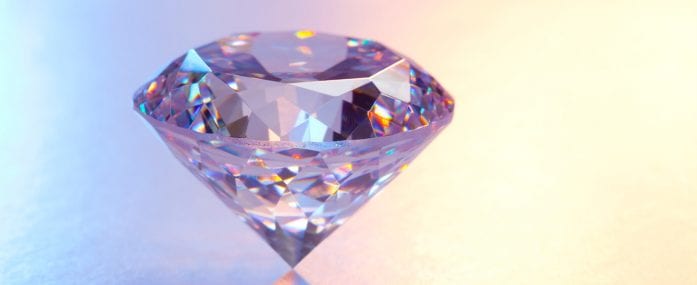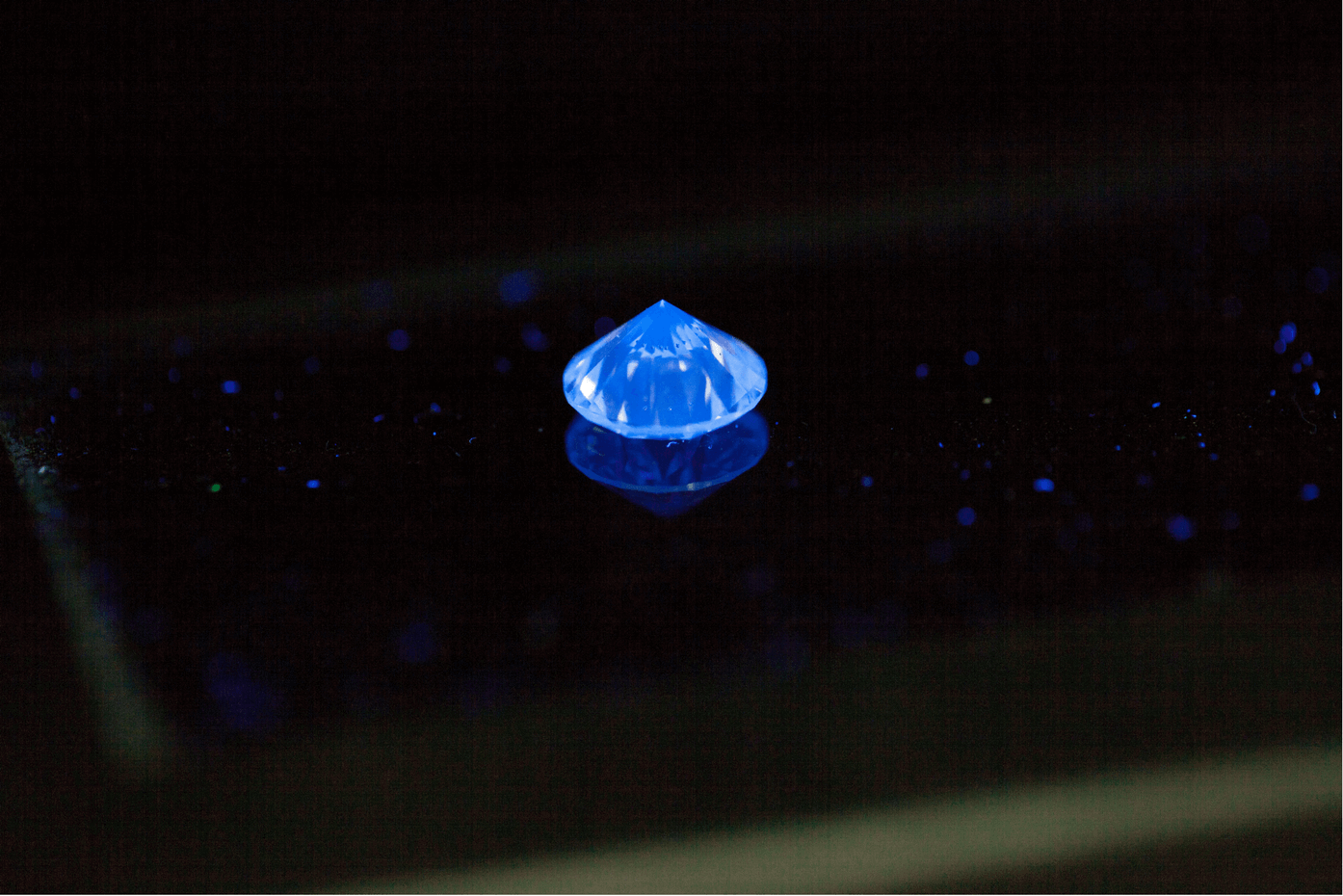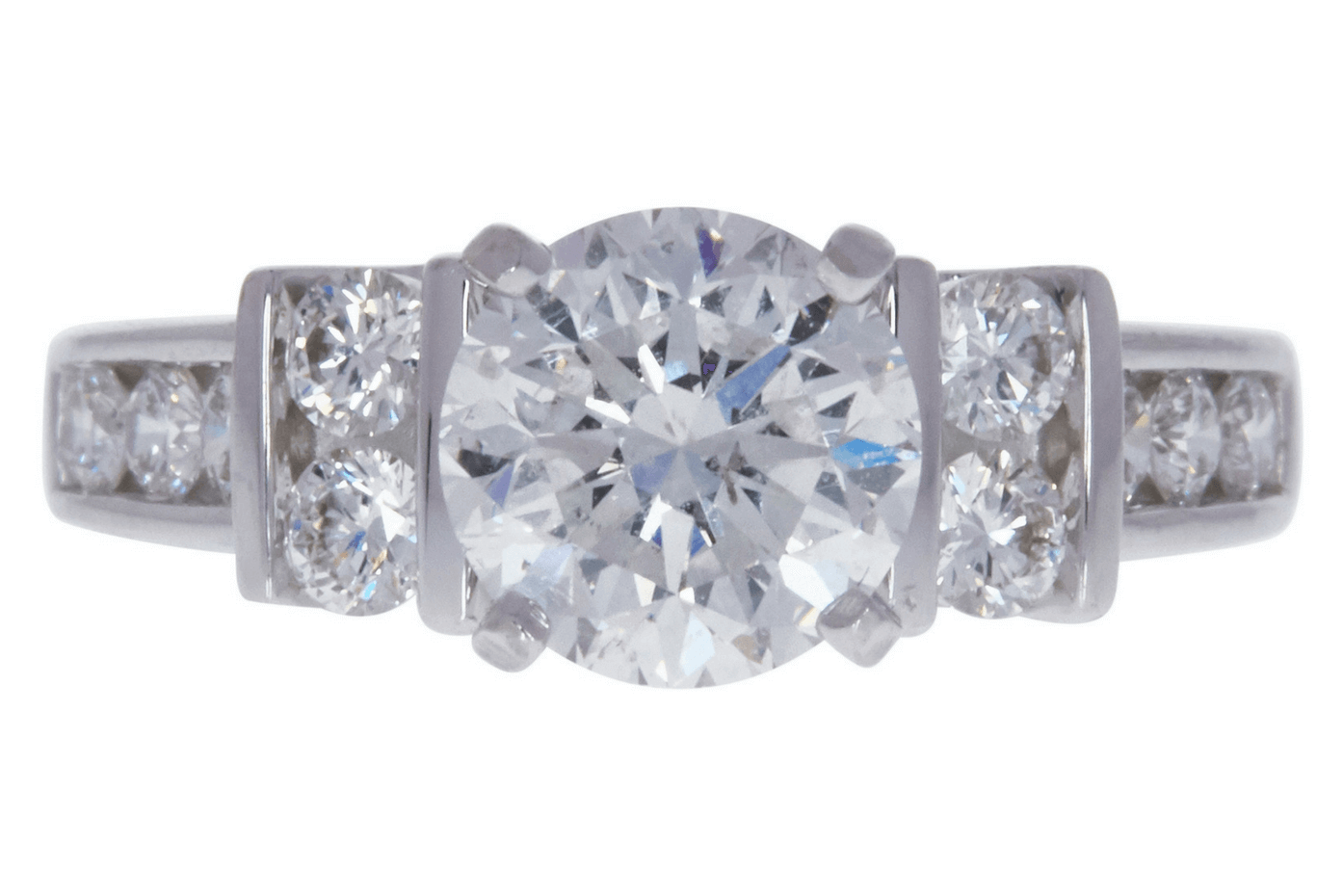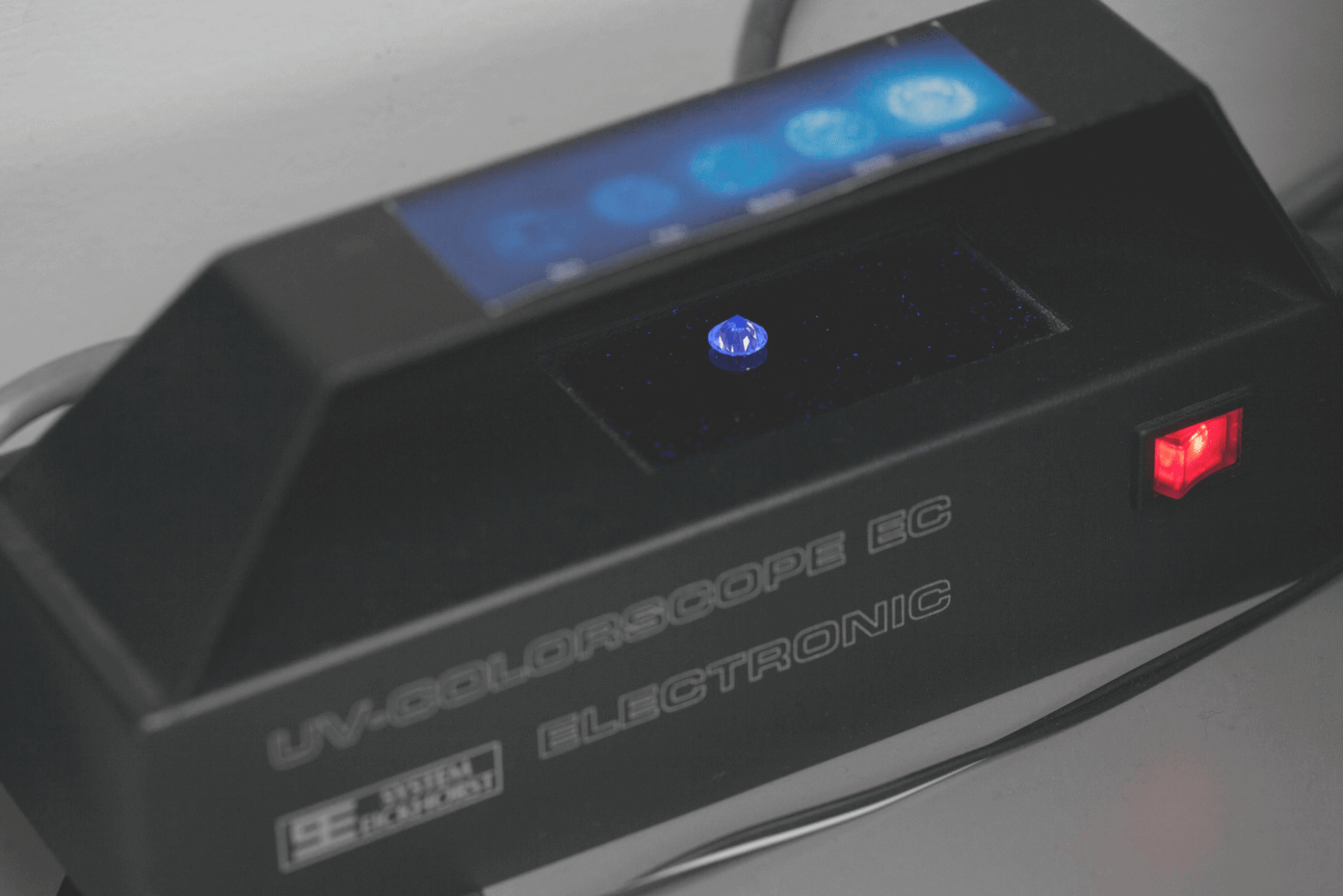
You may have come across the term “fluorescence” on a diamond grading report, or have heard the term used by jewelers and retailers. But what does it mean to have your diamond fluoresce, is it good or bad, and what impact does it have on the beauty and value of your stone?
Fluorescence is the visible light or glow emitted by some diamonds when they are exposed to electromagnetic radiation (ultraviolet light, better known as UV). A few common sources of ultraviolet rays include sunlight, black lighting from nightclubs, and fluorescent bulbs. This causes certain diamonds to emit a light or glow which is temporary and stops once the ultraviolet light source is removed.
It is a fairly common phenomenon, with around 25% to 35% of diamonds demonstrating some degree of fluorescence. On a diamond grading report, fluorescence typically refers to the strength or intensity of a particular diamond’s fluorescence, which can range from none (no reaction to ultraviolet light) to very strong (emitting an extremely bright intense glow).

Diamonds can contain tiny amounts of elements such as nitrogen, boron or aluminum. If these trace elements are present in a diamond’s atomic structure, energy from ultraviolet sources can be absorbed by their electrons. When these electrons absorb energy, they become excited and jump up to higher states of energy.
Following the laws of physics, these excited electrons always seek to return to a stable state. They do this by getting rid of excess energy, releasing them in the form of photons (the smallest discrete amount of electromagnetic radiation)– which we observe with our naked eye as fluorescence.
The most common color of fluorescence is blue. Other colors are much rarer and include yellow, white, green and pink. Ultimately, the visible fluorescent color is determined by the individual chemical composition and make-up of each diamond’s atomic lattice structure during its formation process.
READ MORE: Can You Tell A Diamond’s Worthy By It’s Picture?
Most diamonds with slight fluorescence have no noticeable impact on their color or appearance. However, fluorescing diamonds tending toward a more intense blue, when paired with low body color (I to M), may look more white, though they can potentially look hazy as well. In this instance, the cool blue tones offset the warmer yellow tints, giving the appearance of a higher body color. Conversely, diamonds with medium, strong, to very strong fluorescence in the colorless category (D to F) should be approached with care, as they tend to have a higher chance of looking hazy.

The popularity of fluorescent diamonds have waxed and waned over the years. Whatever positive effect fluorescence has on a diamond, seems to be of little consequence since the advent of grading reports. Most buyers started staying away from diamonds that had anything extra which may be unfavorable– including fluorescence.
In current market conditions, most colorless diamonds with medium to stronger fluorescence are typically sold at a lower price, compared to similar stones without fluorescence. With I to M color diamonds, however, the trend can sometimes be reversed, depending on the individual stone.

In short, fluorescence should be a factor to consider when looking for a diamond, as in some cases, it can potentially affect the appearance and price of a stone. Just remember the four Cs (color, cut, clarity and carat) are more important, as cut is what greatly determines the sparkle of a diamond. In the end, the final decision is yours. Understanding how all the factors work in tandem as a well-informed consumer will help you find that perfect balance between budget and beauty.
©2011-2025 Worthy, Inc. All rights reserved.
Worthy, Inc. operates from 25 West 45th St., 2nd Floor, New York, NY 10036